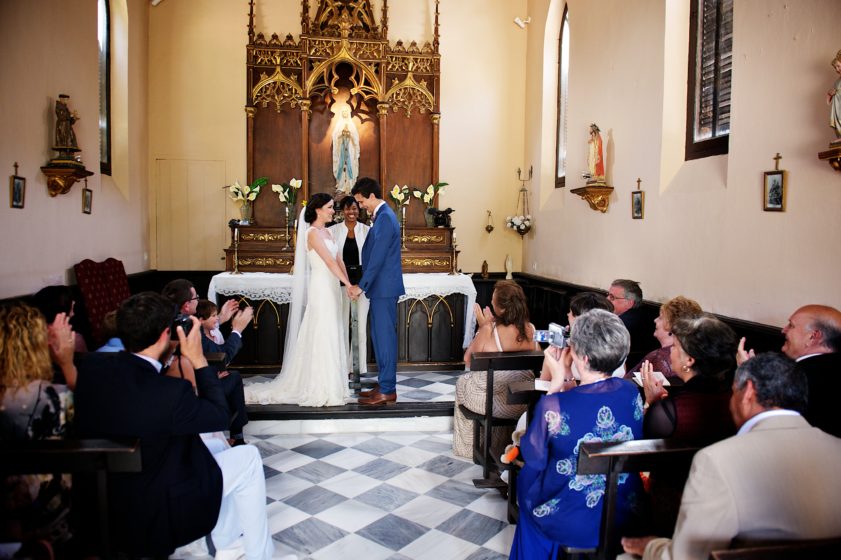
Seeing a civil ceremony for what it is and what it isn’t
Fact: The sole purpose of a civil wedding ceremony, no matter what country you are in, is to make you a legally married couple.
Fact: A registrar (the person who presides over the completion of the legal contract) has the sole aim of making sure that the legal contract is understood by both parties and that both parties satisfy all of the legal requirements to enter into said contract. Most of the wording said by the registrar is legalese, terminology designed to explain the legalities of the marriage contract.
It all sounds very official, doesn’t it? And that’s because it is! Although, sympathetic and mindful of the union being formed by the couple, most registrars do not busy themselves with injecting romance, humour, love, fun or sentimentality into a ceremony and that’s generally because they are not legally obliged to do so. *
Couples can get lucky in that they may have a registrar who is a cheery, romantic soul who will encourage them to have a reading if they want and have some nice music to start and end the ceremony with, however many will not go beyond this level of personalisation and some won’t encourage it at all.
So how can you spruce up your civil ceremony and make it more personal to you?
Have a chat with your registry office to find out exactly what you can and can’t do during your ceremony. Generally speaking music and non religious readings are permitted, by check with your specific registry office. Civil weddings generally have a time limit, so find out what it is and find out whether you can go beyond that if needs be. If your ceremony is taking place in a registry office, it is more than likely that there will be ceremonies before and after yours, which may affect the length of time you are allowed. Many registry office buildings have health and safety considerations to adhere to, too, such as no confetti, limited space etc (bah humbug!) However, if you are getting married in a licenced venue perhaps the registrar may have more flexibility.
With civil ceremonies, timing seems to be the key. If it seems that you can have some flexibility with your ceremony duration, then this may then allow you to add more personal aspects to your ceremony i.e readings, group songs, live music, etc.
 Have personalised vows, if you want to. In most civil ceremonies, you will be asked a legal question vow in order to show your intentions to enter into your marriage contract. There will be no choice in whether you can say these vows or not. However, in most civil registries there is no legal rule (check with your own authorities) that says you cannot say your own additional, personalised vows. There may be some guidelines that you have to stick to, but be wary of anyone who tells you you cannot have personalised vows.
Have personalised vows, if you want to. In most civil ceremonies, you will be asked a legal question vow in order to show your intentions to enter into your marriage contract. There will be no choice in whether you can say these vows or not. However, in most civil registries there is no legal rule (check with your own authorities) that says you cannot say your own additional, personalised vows. There may be some guidelines that you have to stick to, but be wary of anyone who tells you you cannot have personalised vows.
Once you’ve done all of this, if you feel like a civil ceremony, as it stands, will still not give you the ceremony of your dreams, in the location of your choice, on the day of your choice, time of your choice and with the personalisations of your choice, maybe you’re next step is to think about having two ceremonies. A no-frills legal ceremony with just two witnesses followed by the knock ’em dead, this is my gig, I’m-getting-hitched-how-I-want wedding, conducted by a lay celebrant. This is the number one way of ensuring you get all of the above!
- PS. I’m referring more to the UK civil registry system, than any other, as this is the system I have most experience and knowledge of.




